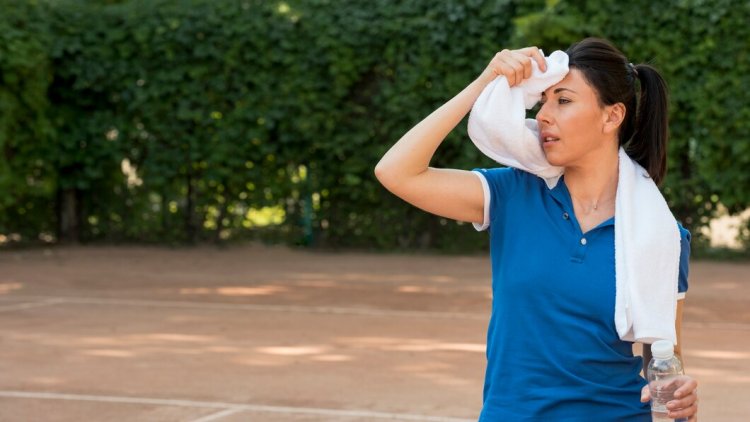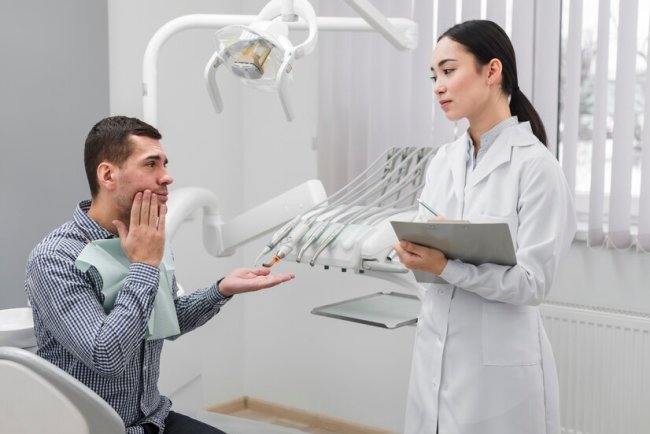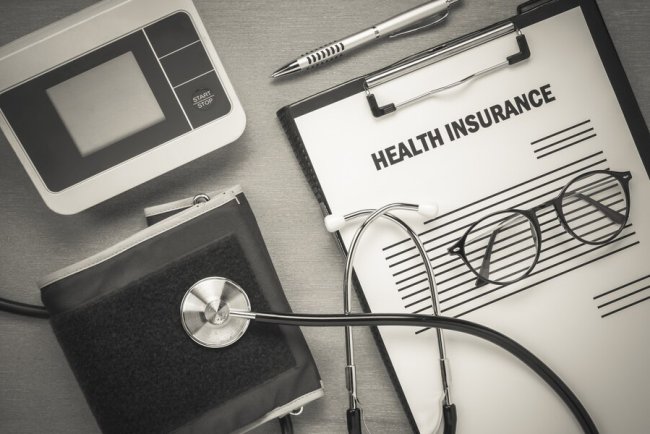Heat Stroke and Heat Exhaustion: Hot-Weather Tips to Stay Safe
Learn how to stay safe in extreme heat. This guide covers heat stroke and heat exhaustion, their symptoms, prevention, and treatment to keep you and loved ones protected.

With rising temperatures and increasingly intense heat waves, understanding the risks associated with extreme heat is crucial. Heat stroke and heat exhaustion are two severe conditions that can arise from prolonged exposure to high temperatures. Both conditions require immediate attention and preventive measures to ensure safety. This comprehensive guide will delve into the symptoms, causes, prevention, and treatment of heat stroke and heat exhaustion, providing essential tips to stay safe during hot weather.
Understanding Heat Stroke and Heat Exhaustion
What is Heat Stroke?
Heat stroke is a serious medical emergency that occurs when the body’s core temperature rises to dangerous levels, typically above one hundred four degrees Fahrenheit. It happens when the body’s natural cooling mechanisms, such as sweating, fail to keep up with excessive heat. Heat stroke can cause severe damage to the brain and other vital organs if not treated promptly.
Symptoms of Heat Stroke
Signs of heat stroke include:
- High body temperature (above one hundred four degrees Fahrenheit)
- Confusion or altered mental state
- Rapid and strong pulse
- Throbbing headache
- Dizziness or lightheadedness
- Nausea and vomiting
- Skin may feel hot and dry, even though the person may not be sweating
What is Heat Exhaustion?
Heat exhaustion is a milder form of heat-related illness but can progress to heat stroke if not addressed. It occurs when the body loses excessive amounts of water and salt through sweating, leading to a decrease in blood flow to vital organs.
Symptoms of Heat Exhaustion
Signs of heat exhaustion include:
- Heavy sweating
- Weakness and fatigue
- Pale, clammy skin
- Dizziness or fainting
- Headache
- Nausea or vomiting
- Muscle cramps
Causes and Risk Factors
Causes of Heat Stroke
Heat stroke typically results from prolonged exposure to high temperatures, especially during physical exertion. Risk factors include:
- High humidity levels, which inhibit sweating
- Dehydration from inadequate fluid intake
- Wearing heavy or non-breathable clothing
- Engaging in strenuous activities during peak heat times
Causes of Heat Exhaustion
Heat exhaustion is caused by prolonged exposure to high temperatures, especially combined with high humidity. Risk factors include:
- Insufficient fluid intake
- Overexertion during physical activities
- Working or exercising in hot environments
- Wearing excessive or inappropriate clothing
Prevention Strategies
Staying Hydrated
One of the most effective ways to prevent heat-related illnesses is to stay hydrated. Drink plenty of fluids, particularly water, before, during, and after exposure to heat. Avoid alcohol and caffeine as they can contribute to dehydration.
Wearing Appropriate Clothing
Choose lightweight, light-colored, and loose-fitting clothing to help your body stay cool. Breathable fabrics, such as cotton, can enhance ventilation and facilitate sweat evaporation.
Adjusting Activity Levels
Limit strenuous activities during the hottest parts of the day, typically between noon and 3 p.m. If you must exercise or work outside, take frequent breaks in the shade and pace yourself to avoid overexertion.
Using Cooling Measures
Utilize cooling measures such as fans, air conditioning, and cool showers to lower body temperature. Applying cool, wet cloths to the skin can also provide relief from excessive heat.
Acclimatizing to Heat
Gradually increase exposure to hot conditions to help your body adapt. Acclimatization allows the body to become more efficient at cooling itself and reduces the risk of heat-related illnesses.
Recognizing and Responding to Heat Stroke and Heat Exhaustion
Responding to Heat Stroke
Heat stroke is a medical emergency requiring immediate action. If you suspect someone is experiencing heat stroke:
- Call emergency services immediately.
- Move the person to a cooler environment.
- Apply cool, wet cloths to the skin and use fans to facilitate cooling.
- Offer fluids if the person is conscious and able to drink.
Responding to Heat Exhaustion
For heat exhaustion:
- Move the person to a cooler environment and have them lie down with their legs elevated.
- Provide fluids, such as water or electrolyte solutions, to rehydrate.
- Apply cool, wet cloths to the skin and use fans to enhance cooling.
- If symptoms persist or worsen, seek medical attention.
Special Considerations for Vulnerable Populations
Children and Infants
Children and infants are particularly vulnerable to heat-related illnesses due to their smaller size and higher body surface area relative to their weight. Ensure they are well-hydrated, avoid prolonged exposure to heat, and dress them in appropriate clothing. Never leave children unattended in vehicles, even for short periods.
Elderly Individuals
Older adults are at higher risk for heat-related illnesses due to reduced physiological responses to heat and potential underlying health conditions. Ensure they stay hydrated, maintain a cool environment, and avoid excessive physical exertion. Regular check-ins can help ensure their well-being during heat waves.
Individuals with Chronic Health Conditions
People with chronic health conditions, such as cardiovascular or respiratory diseases, may be more susceptible to heat-related illnesses. These individuals should take extra precautions to avoid overheating, stay hydrated, and follow their medical provider’s recommendations.
Planning for Hot Weather
Home Cooling Strategies
To keep your home cool during hot weather:
- Use air conditioning or fans to maintain a comfortable indoor temperature.
- Close blinds or curtains during the hottest parts of the day to block out direct sunlight.
- Use cooling devices, such as misting fans or portable air conditioners, to enhance comfort.
Emergency Preparedness
Have a plan in place for extreme heat events, including:
- Identifying cooling centers or public places with air conditioning.
- Ensuring access to necessary medications and medical supplies.
- Preparing an emergency kit with essential items, such as water, non-perishable food, and a battery-operated fan.
Educating Others
Spread awareness about the risks of heat-related illnesses and preventive measures. Educate family, friends, and community members about recognizing symptoms, responding to emergencies, and taking steps to stay safe during hot weather.
FAQ
What should I do if I start feeling dizzy or lightheaded in the heat?
If you experience dizziness or lightheadedness, find a cool, shaded area to rest immediately. Drink water and apply cool, wet cloths to your skin. If symptoms persist or worsen, seek medical attention.
How can I prevent heat-related illnesses while exercising outdoors?
To prevent heat-related illnesses during outdoor exercise, stay hydrated, take frequent breaks, and exercise during cooler parts of the day. Wear lightweight, breathable clothing and listen to your body’s signals.
Are there any medications that increase the risk of heat stroke or heat exhaustion?
Certain medications, such as diuretics or those that affect fluid balance, may increase the risk of heat-related illnesses. Consult with your healthcare provider about the potential effects of your medications and take appropriate precautions.
How can I help someone who is experiencing heat exhaustion but is not improving with home treatment?
If heat exhaustion symptoms do not improve with home treatment, seek medical attention. The individual may require professional evaluation and treatment to address dehydration or other complications.
Is it safe to use fans to cool down in high heat conditions?
Fans can help cool down indoor spaces and enhance comfort, but they may not be sufficient in extreme heat conditions. Use fans in combination with other cooling measures, such as air conditioning and hydration.
Can pets also suffer from heat-related illnesses?
Yes, pets can suffer from heat-related illnesses, such as heat stroke. Ensure they have access to plenty of fresh water, provide shaded areas, and avoid leaving them in hot environments. If your pet shows signs of heat-related illness, seek veterinary care immediately.
By understanding the risks associated with heat stroke and heat exhaustion and taking appropriate preventive measures, you can protect yourself and your loved ones from the dangers of extreme heat. Stay informed, stay hydrated, and stay cool to ensure a safe and healthy summer season.
What's Your Reaction?



















